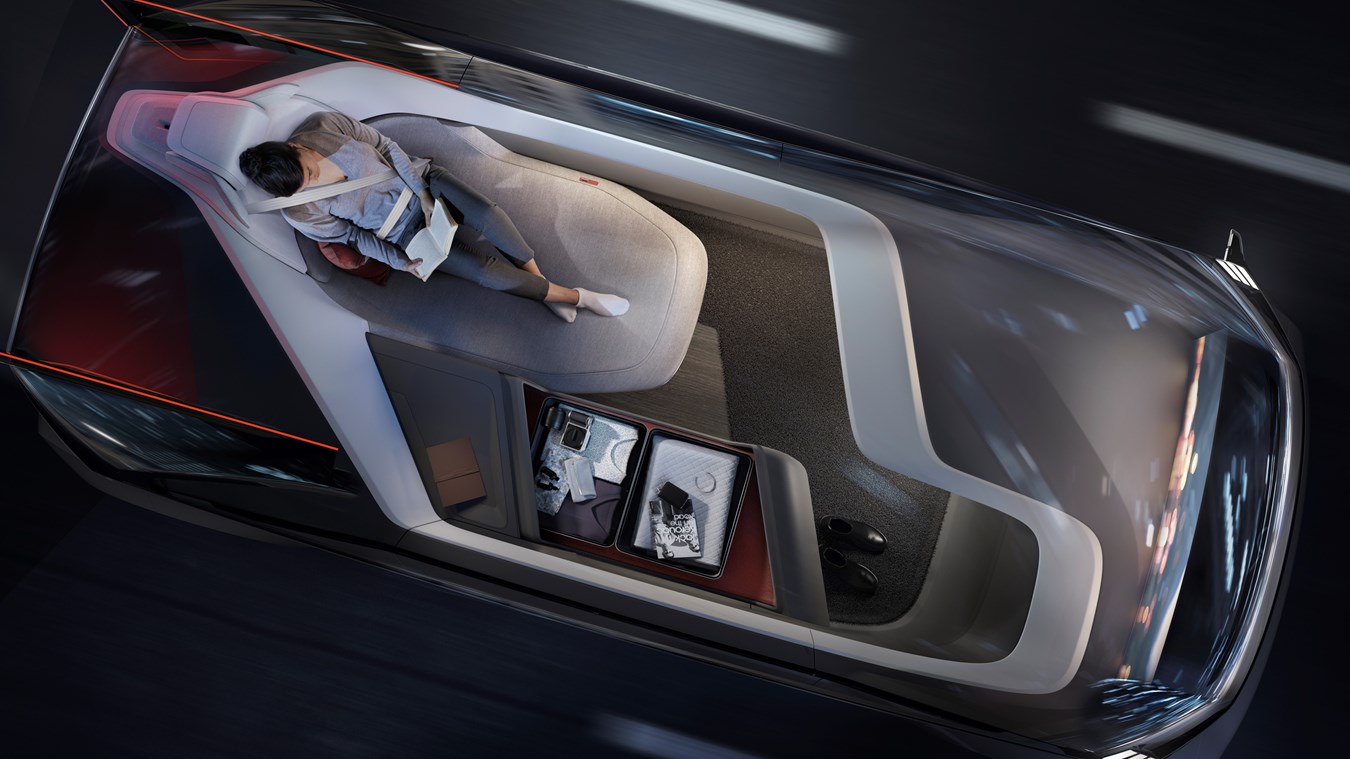Volvo dreams up its first driverless electric car

Volvo has unveiled its first electric self-driving car concept, as it races to meet its own targets of making a third of its car sales autonomous by 2025.
Aside from driving around town, Volvo hopes that the 360c could replace short-haul air travel, particularly for routes where the distance travelled is around 300km (186 miles) such as domestic flights in the US.
“Domestic air travel sounds great when you buy your ticket, but it really isn’t. The 360c represents what could be a whole new take on the industry,” said Marten Levenstam, senior vice president of corporate strategy at Volvo Cars.
Read more: Flying cars, AI and blockchain: Tech trends in Gartner's 2018 Hype Cycle
Volvo has suggested four potential space uses inside the 360c, including a sleeping space, a mobile office, a living room and entertainment space.
Volvo Cars' president and chief executive Hakan Samuelsson said the vehicle business "will change in the coming years and Volvo should lead that change of our industry".
Volvo previously announced all new models from 2019 will be fully electric, and expects battery-powered cars to be 50 per cent of its sales by 2025.
Other manufacturers have also made steps towards challenging Tesla's hold on the electric car market this week, as Jaguar and Mercedes Benz both launched electric vehicles.
Read more: Mercedes-Benz to unveil its first Tesla-challenger electric SUV
To date Volvo's electric and autonomous vehicle development has been tied with Uber, which operated a fleet of autonomous Volvo XC90s until it suspended operations in March after a collision led to the death of a pedestrian.
Volvo is expected to launch an initial public offering later this year, as sources told Reuters the carmaker could be valued at $16-$30bn.